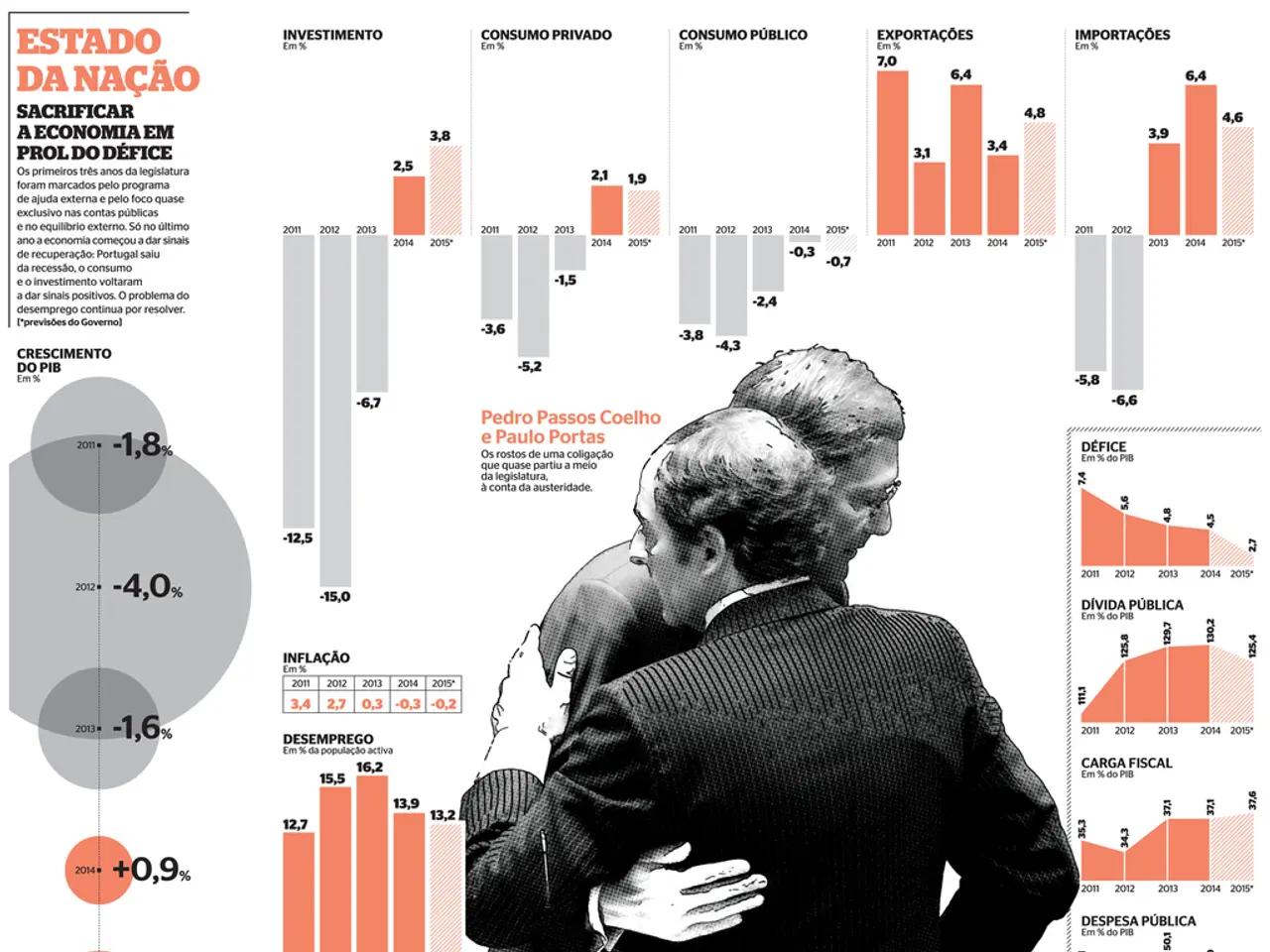Navigating Emotional Detachment in Romantic Connections
Emotional distance in relationships can be a challenging obstacle to overcome, but it doesn't have to be the end of the story. Research indicates that prioritizing higher emotional awareness and stronger boundaries can lead to improved communication and relationship satisfaction [1].
Identifying the Causes and Signs of Emotional Distance
Emotional distance in a relationship can be caused by recurring unresolved conflicts, lack of emotional support, personal wounds or coping patterns, and prioritizing individual needs over the partner's [2][5]. Signs of emotional distance may include reduced communication, lack of physical affection, roommate energy, avoiding discussions about deeper emotions, and feeling alone [3].
Signs of Emotional Distance:
- Lack of intimacy or affection: Physical touch and emotional support become rare.
- Feeling lonely even when physically together: Sharing a bed or meals but feeling emotionally miles apart.
- Preference to spend time apart consistently rather than together.
- Loss of shared interests, goals, or meaningful communication.
- Communication breakdown or terse, distant responses; withdrawal during emotional conversations.
- Repetitive negative arguments or unresolved resentments that build emotional walls.
- Feeling misunderstood, rejected, or walking on eggshells to avoid conflict.
- Signs of emotional numbness, disengagement, and reduced empathy or kindness toward each other.
Rebuilding Emotional Distance with Couples Therapy:
Couples therapy offers a safe, structured space where both parties feel heard, seen, and respected. Here are practical steps that can help rebuild emotional distance within a relationship:
- Recognize patterns and root causes: Therapists help couples identify cycles of withdrawal, emotional stonewalling, and unresolved conflicts that perpetuate distance.
- Create emotional safety: Learn to discuss tough issues without triggering defensiveness, allowing honest expression of feelings and fears.
- Build communication skills: Use targeted exercises to improve active listening, empathy, and affirming each other's feelings.
- Promote forgiveness and healing: Address past hurts proactively to prevent them from building unseen emotional walls.
- Restore intimacy through small, consistent affectionate gestures: Even trivial demonstrations of care can rebuild emotional closeness over time.
- Explore individual histories and wounds: Understanding childhood experiences and relationship schemas that shape emotional distancing helps break unhelpful patterns.
- Set shared goals and nurture interests: Reconnect by rediscovering common hobbies or dreams that affirm the partnership.
- Consistent commitment to therapy and mutual effort: Both partners need to engage actively and remain patient through the healing process.
Approaches like the Gottman Method provide structured, evidence-based strategies to help couples reconnect emotionally by focusing on these steps with a trained professional [2].
In conclusion, emotional distance manifests as disconnection and withdrawal caused by unresolved conflicts, lack of support, and reduced intimacy. Identifying these signs early and seeking couples therapy to rebuild communication, safety, and connection through practical steps is fundamental to restoring the emotional bond. This process requires commitment from both partners and often the guidance of a skilled therapist.
[1] Gottman, J. M., & Silver, N. (1994). The Seven Principles for Making Marriage Work: A Practical Guide from the Country's Foremost Relationship Expert. Simon and Schuster. [2] Gottman, J. M. (2015). What Makes Love Last?: How to Build Trust and Avoid Betrayal. Crown Archetype. [3] Johnson, S. M. (2008). Hold Me Tight: Seven Conversations for a Lifetime of Love. Little, Brown Spark. [4] Johnson, S. M. (2019). Emotionally Focused Therapy for Couples: Co-creating Connection. Routledge. [5] Fincham, F. D., & Davies, J. L. (2000). The Effects of Emotional Processes on Marital Satisfaction: A Meta-Analytic Review. Psychological Bulletin, 126(1), 3-34.
- Seeking couples therapy can help address emotional distance, a common challenge in relationships, by creating a structured space for improved communication and emotional awareness [1].
- Addressing emotional distance requires understanding patterns and root causes of emotional distancing, such as unresolved conflicts or lack of emotional support, and learning to discuss such issues without triggering defensiveness [2].
- Building emotional safety, improving communication skills, and promoting forgiveness and healing are key steps in rebuilding emotional closeness, as demonstrated by approaches like the Gottman Method [2].
- Mental health therapies and treatments, including Emotionally Focused Therapy for Couples, can help improve mental health, reduce anxiety, and restore love and dating relationships by focusing on family dynamics, lifestyle, and relationships [1,4].
- Lifestyle changes, such as setting shared goals and nurturing interests, can also help reconnect couples and strengthen emotional bonds [7].




